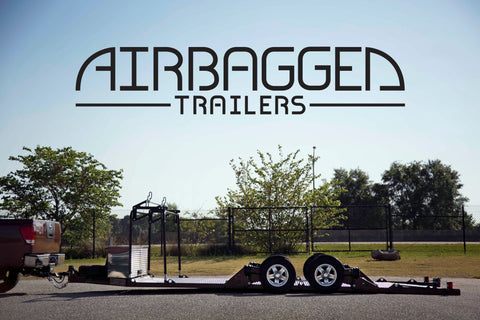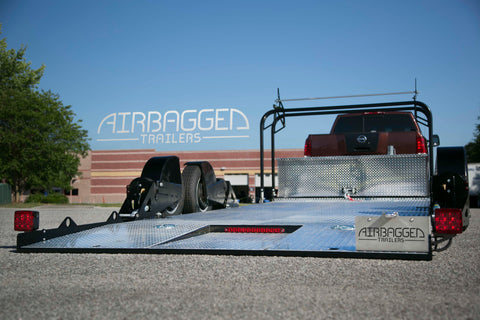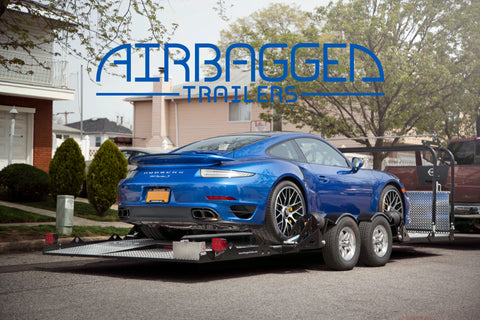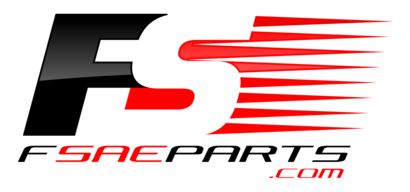Nick Maarhuis (Owner and designer/engineer, Airbagged Trailers, inc.)
When I was at the University of Waikato back in the mid 2000’s, FSAE was (and tbh probably still is) relatively unknown in New Zealand, but when I found out a group were looking to design and scratch-build a race car, I jumped at the opportunity to get involved. Although NZ punches above it’s weight in great race car drivers (historically the likes of Bruce McLaren and Denny Hulme, and more recently, guys like Scott Dixon, Brendan Hartley and Hayden Paddon), our small population (four million) and non-existent car manufacturing industry means the likelihood of landing a job designing OEM or race cars post-FSAE was slim-to-none, and so unlike our Australian neighbors (and competitors, as the Australasian even was held in Australia), there wasn’t really any expectation of landing an automotive-based job, and hence the team members all went on to different areas of engineering. A decade or so later, after connecting on Instagram, FSAEparts.com have asked me to write an article about how FSAE helped me get to where I am now, and as I imagine the above situation is not unique to just New Zealand, I’m going to share my thoughts on FSAE and how it can benefit those not going directly into jobs designing race or production cars.
Firstly, I’d like to share my thoughts on the benefits of FSAE for engineers, but to avoid risking “preaching to the choir”, I’ll keep it fairly brief…
- FSAE is great for getting hands-on, practical experience designing and testing physical components, operating tools (lathes, mills, etc), and working with your team and suppliers to bring large complex assemblies to a single cohesive end product. Universities wish they could teach this, but you simply can’t learn these skills in the classroom.
- The nature of designing race car parts and finding the best engineering solutions to your goals while minimizing weight and ensuring sufficient strength, leads to great product designers in any industry. Look at almost any consumer product, and the goal is typically that it needs to be lighter, stronger, use less material, and it needs to be easier or cheaper to make, or have some other innovative advantage over other products. The desire to shave grams/ounces off each part to win races creates engineers who can then apply those same skills to create everyday consumer products that are just that bit slimmer or lighter or stronger or more reliable than the competition’s.
- FSAE is a great, fun, interesting experience.
Now for a bit about my own journey, which is likely quite different to the path most graduate engineers take. Part of the reason for this is that I wasn’t actually a graduate engineer, as unlike most FSAE participants, I was an MSc student. Having done a Materials and Process Engineering undergrad (BSc), and then Materials Science for the masters, I shared 90% of my classes with B.Eng students and so had a similar technical understanding but different career path. After university, like many Kiwis (New Zealanders), I immediately jumped on a plane to Australia, looking for better weather, better beaches, and better pay. I wasn’t even sure what I wanted to do at the time and so applied for various positions, eventually landing a job as manufacturing operations improvement consultant with a great company based in Sydney. Helping a diverse range of manufacturers improve their efficiency, quality, output, and other KPI’s was challenging and rewarding, and I was able to do that in various parts of Australia, then later the UK and also back in NZ. Although it was an enjoyable and rewarding job, my passion was always designing and creating things, and so my outlet at the time was ground-up, highly custom vehicle builds. This also enabled me to further my fabrication skills (mig and tig welding, etc) and prototyping skills, and other skills that were learnt (and developed) during FSAE, such as Solidworks 3D modelling. In 2012 I decided that although business-improvement was a great career, I’d rather follow my passions, and took a few months off work following the end of a contract so I could work out what that new path would be. With a few different ideas in mind, the one I ended up pursuing was a product I’ve named after literally what they are - Airbagged Trailers. Now being built in the USA, I have no doubt that they wouldn’t exist if I hadn’t participated in FSAE and then taken those lessons, developed them further and then combined them with other learnings from consulting in various manufacturing industries. Going forward my goals are to continue developing the business while also creating other new products, but with more motorsport focus. One of these is an active-aero product that was recently submitted for a provisional patent, but that may be a story for another article.
For the engineering students reading this, I feel I should probably end on some advice, which is that I think it’s not so critical what path you take after your studies, as long as you work hard and always strive for excellence, and preferably you do what you love doing. FSAE can be a great part of that journey, and if you don’t get a job in motorsports afterwards, it doesn’t mean you can’t at some later point get back into the industry in another way.
Nick Maarhuis
Airbagged Trailers
www.airbaggedtrailers.com







